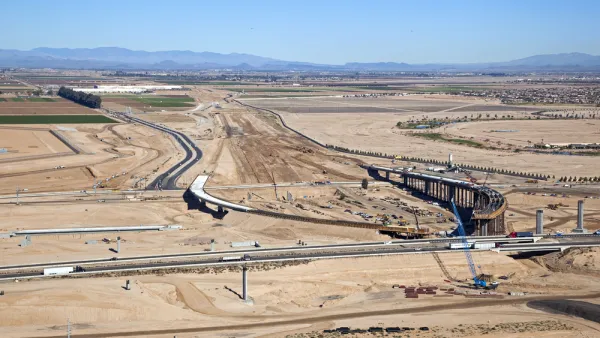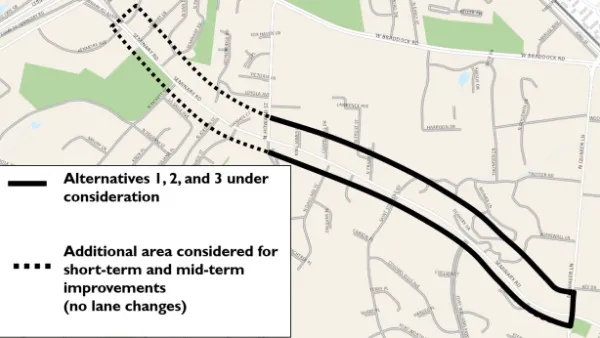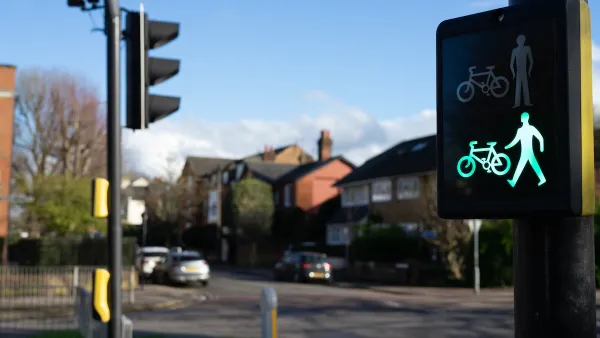The Federal Highway Administration (FHWA) released a report to Congress this week that takes initial steps toward making complete streets the default model for funding and designing federally controlled roads.

The Federal Highway Administration (FHWA) on Wednesday published a new report that adopts complete streets as the default approach for funding and designing the majority of federally funded roadways in the United States, according to an FHWA press release.
The "Moving to a Complete Streets Design Model: A Report to Congress on Opportunities and Challenges" report focuses on non-access-controlled roadways—i.e., not freeways, but urban arterials and small town main streets.
The Complete Streets design model will address rising traffic fatalities by implementing designs that reduce speeds, "making it a key component of FHWA’s implementation of the U.S. Department of Transportation’s National Roadway Safety Strategy," according to the press release.
To achieve its goals, the FHWA's complete streets program will focus on five opportunity areas:
- Improved data collection and analysis.
- Rigorous safety assessment during development and design.
- Accelerated adoption of standards and guidance.
- Reinforcing safety as a top priority.
- Complete streets as a default approach.
As noted in the press release, the Infrastructure Investment and Jobs Act (IIJA) approved by Congress at the end of 2021 also includes new priorities on Complete Streets, including a requirement that states and metropolitan planning organizations use at least 2.5 percent of their planning funding on activities related to Complete Streets or travel on foot, by bike, in a vehicle or using public transit. The IIJA "also continues to provide funding for Complete Streets activities through Rebuilding American Infrastructure with Sustainability and Equity (RAISE) grants and the National Highway Performance Program," adds the press release. "Surface Transportation Block Grant Program funds can also be used for Complete Streets implementation," and the FHWA also recently released guidance for the Highway Safety Improvement Program, which can be used for Complete Streets projects and received an additional $4 billion in funding, as documented by Planetizen in an article from November 2021.

Analysis: Cybertruck Fatality Rate Far Exceeds That of Ford Pinto
The Tesla Cybertruck was recalled seven times last year.

National Parks Layoffs Will Cause Communities to Lose Billions
Thousands of essential park workers were laid off this week, just before the busy spring break season.

Retro-silient?: America’s First “Eco-burb,” The Woodlands Turns 50
A master-planned community north of Houston offers lessons on green infrastructure and resilient design, but falls short of its founder’s lofty affordability and walkability goals.

Test News Post 1
This is a summary

Analysis: Cybertruck Fatality Rate Far Exceeds That of Ford Pinto
The Tesla Cybertruck was recalled seven times last year.

Test News Headline 46
Test for the image on the front page.
Urban Design for Planners 1: Software Tools
This six-course series explores essential urban design concepts using open source software and equips planners with the tools they need to participate fully in the urban design process.
Planning for Universal Design
Learn the tools for implementing Universal Design in planning regulations.
EMC Planning Group, Inc.
Planetizen
Planetizen
Mpact (formerly Rail~Volution)
Great Falls Development Authority, Inc.
HUDs Office of Policy Development and Research
NYU Wagner Graduate School of Public Service




























